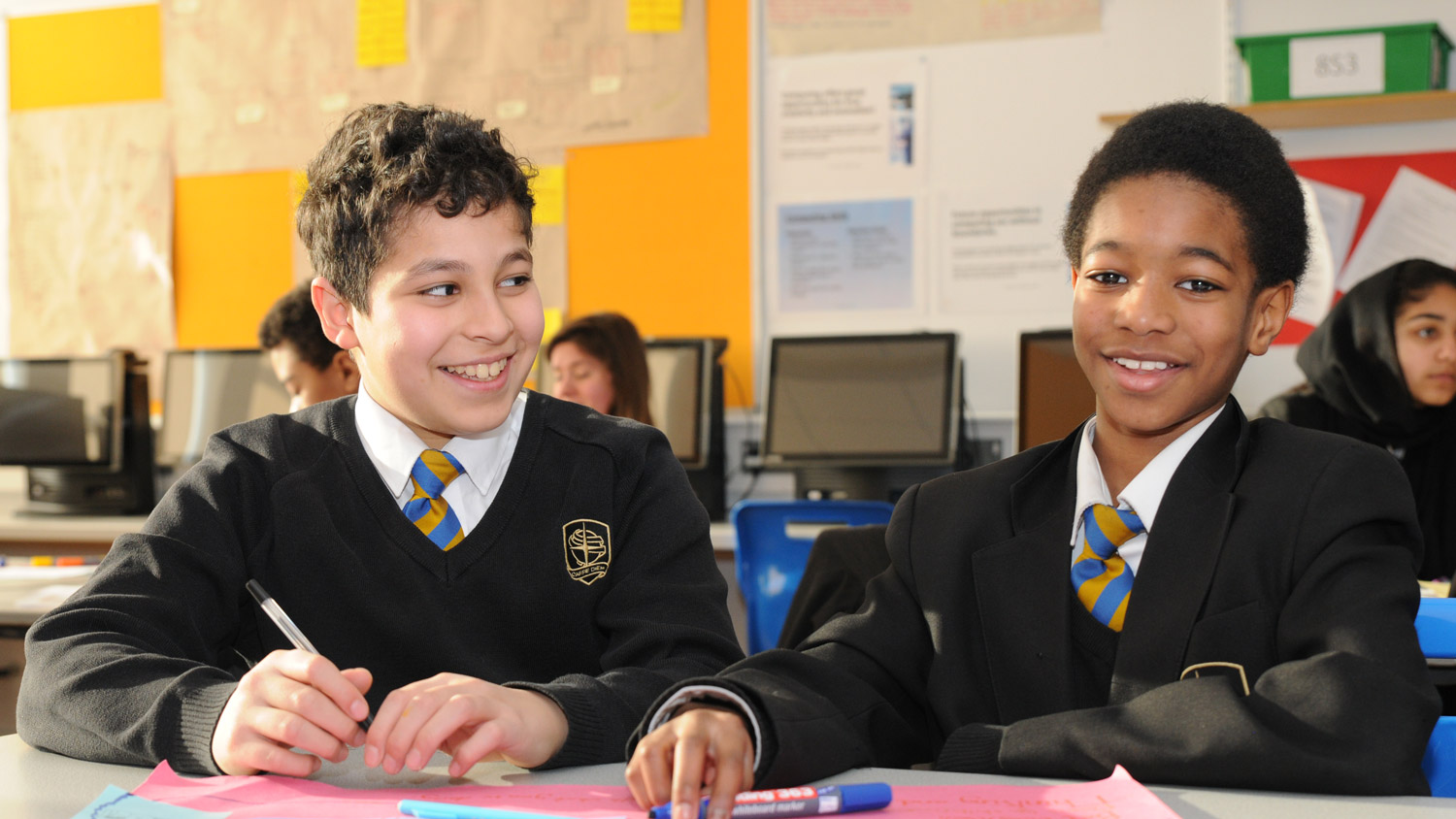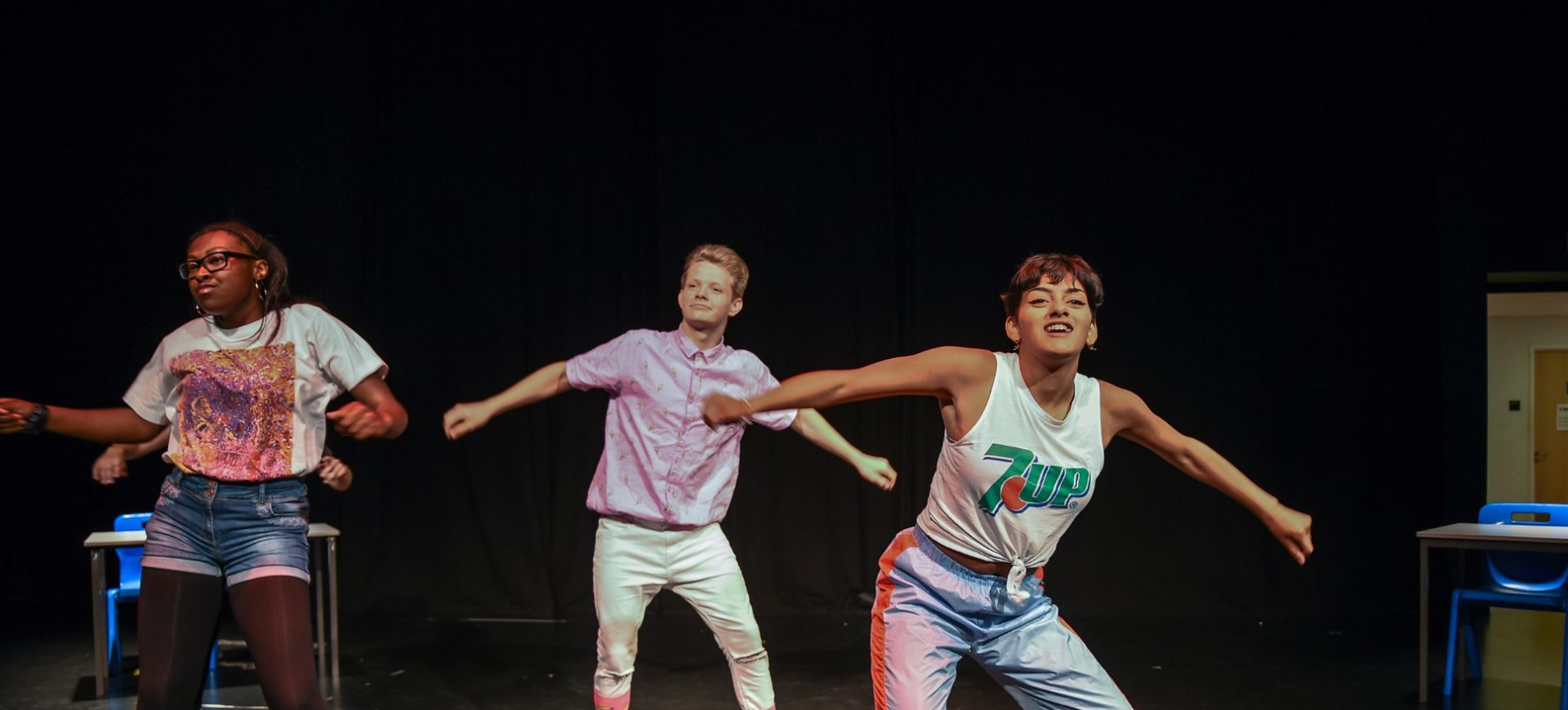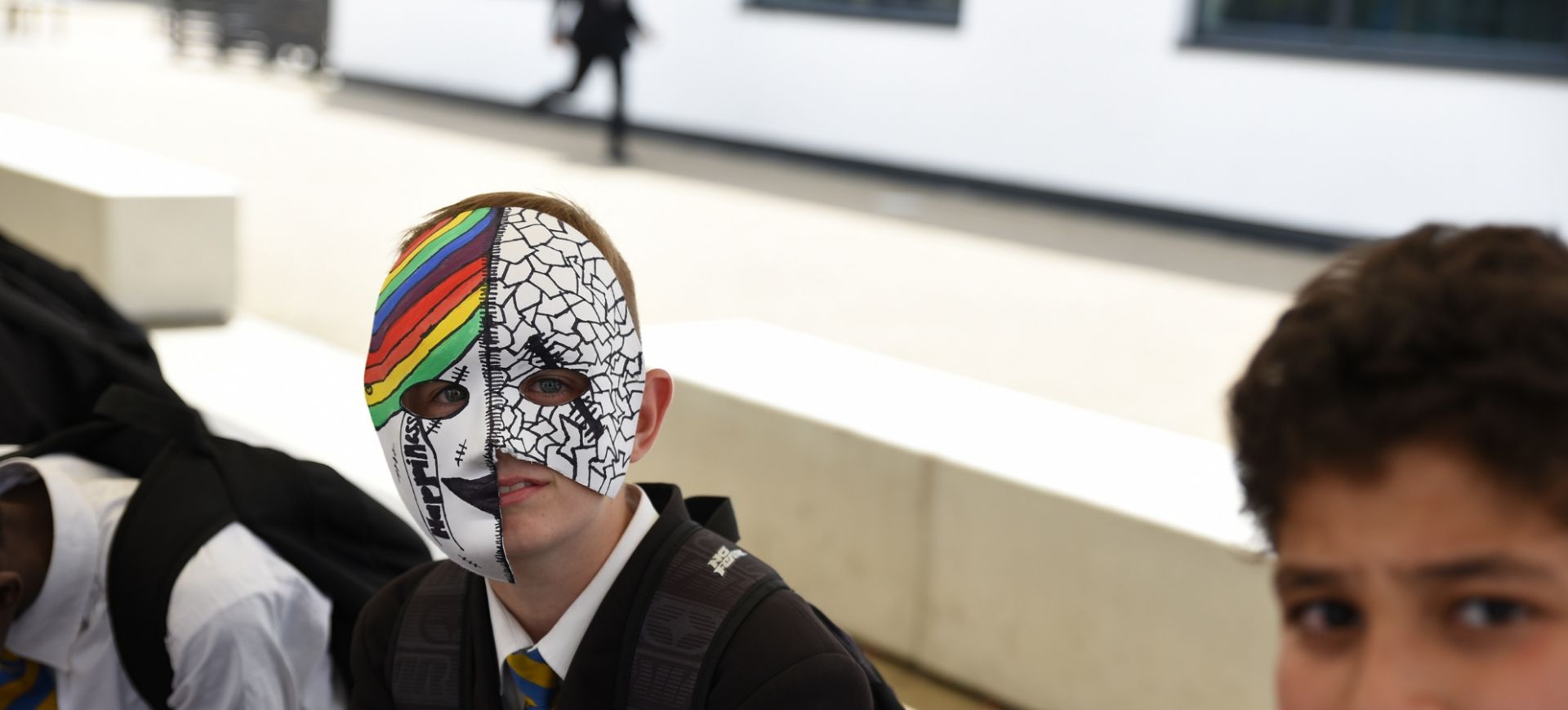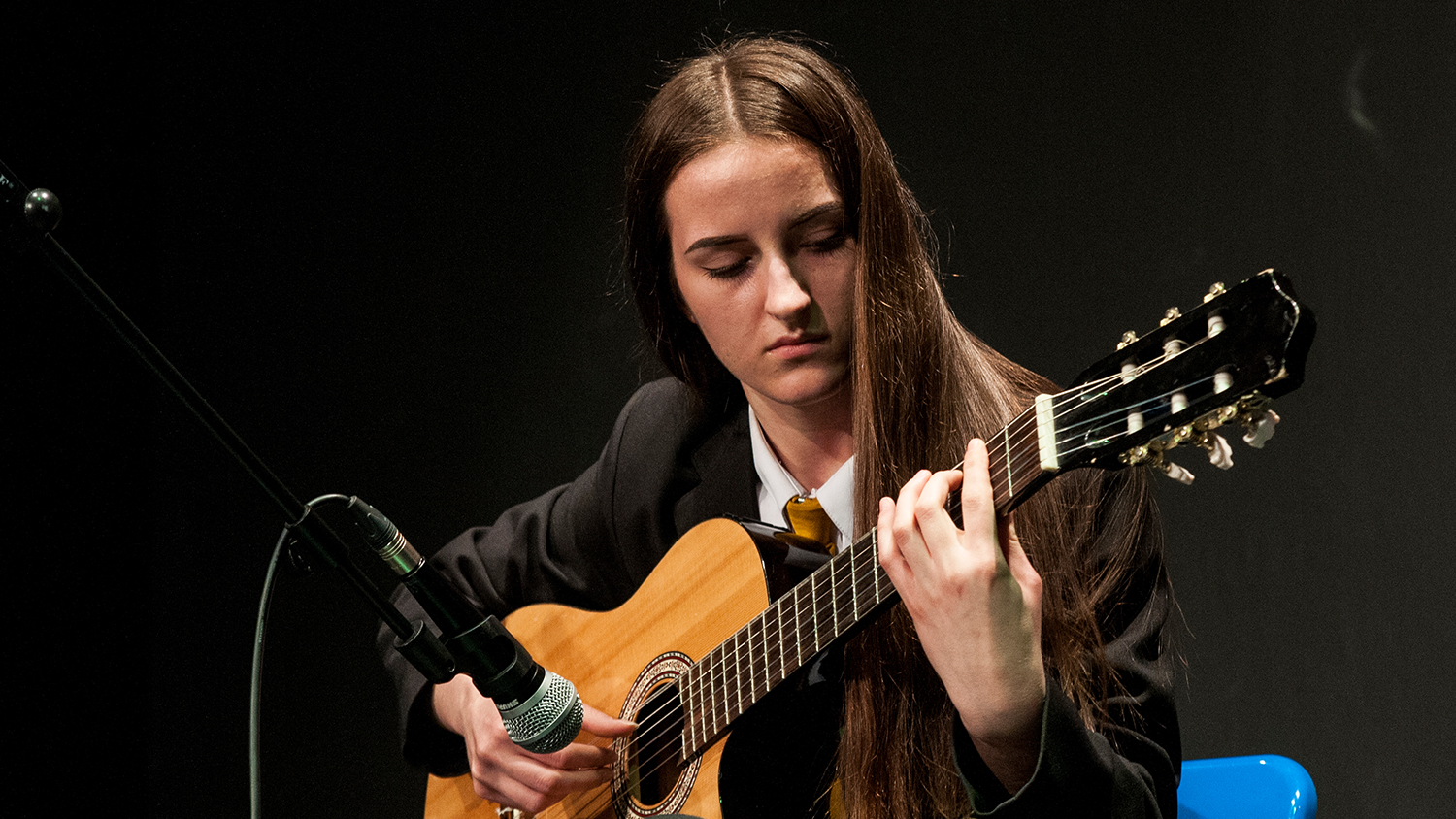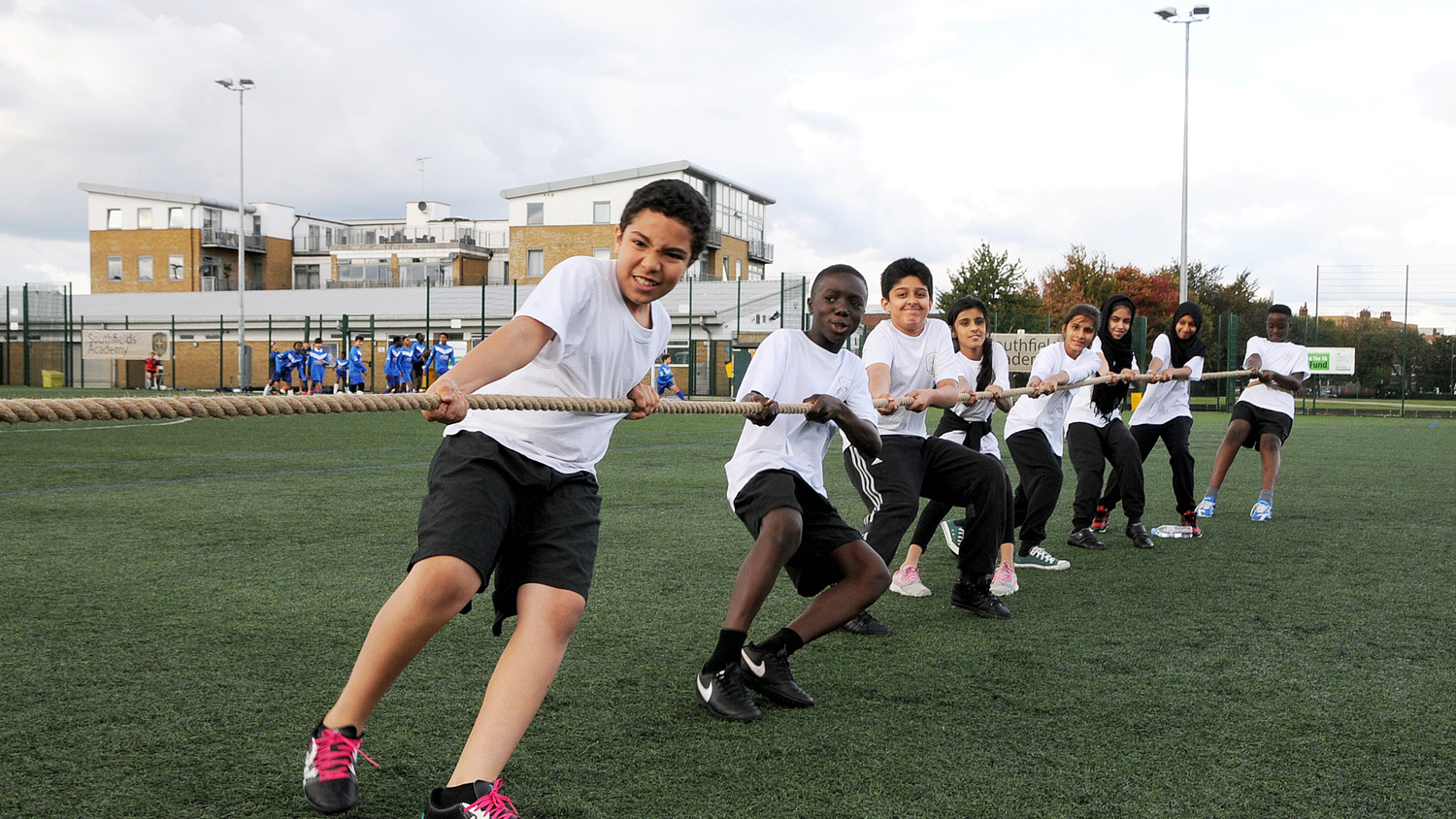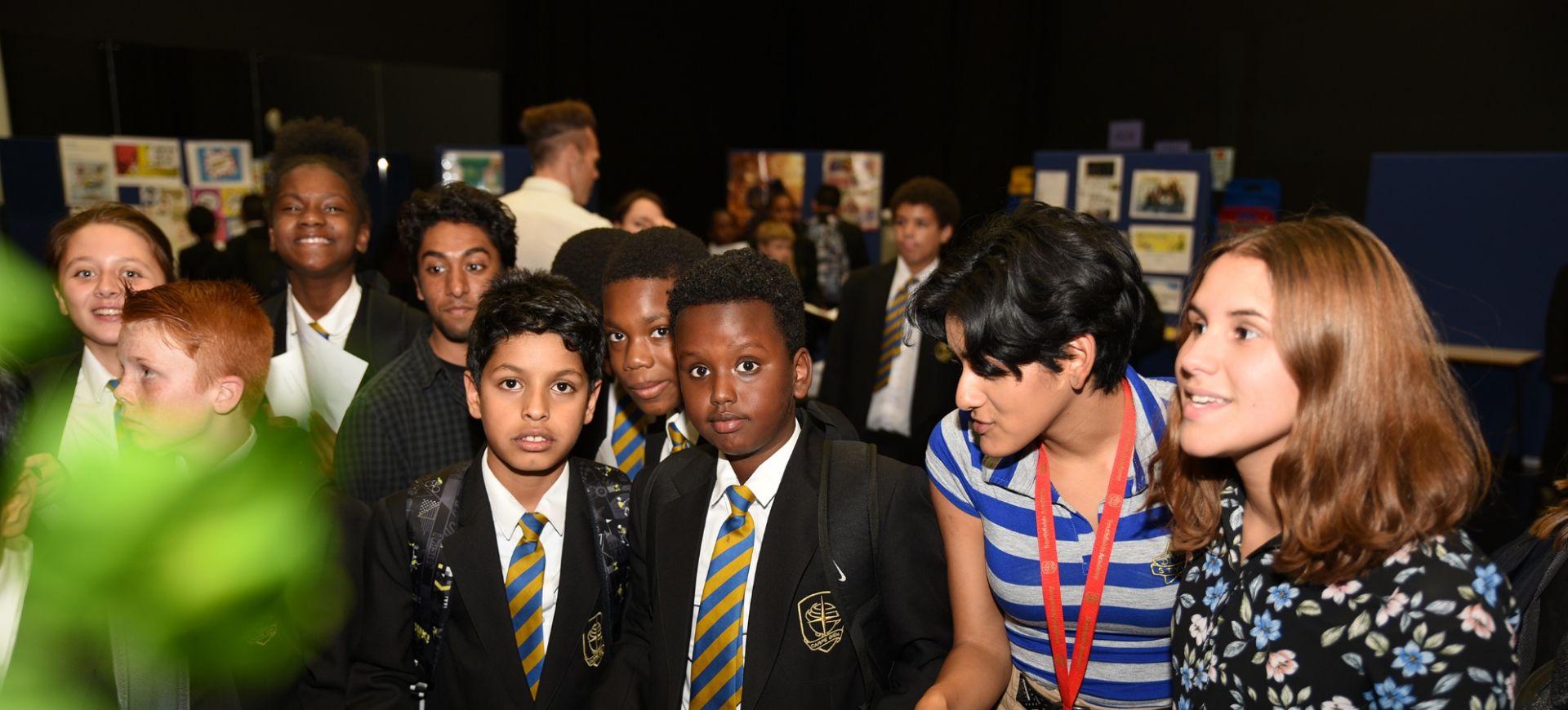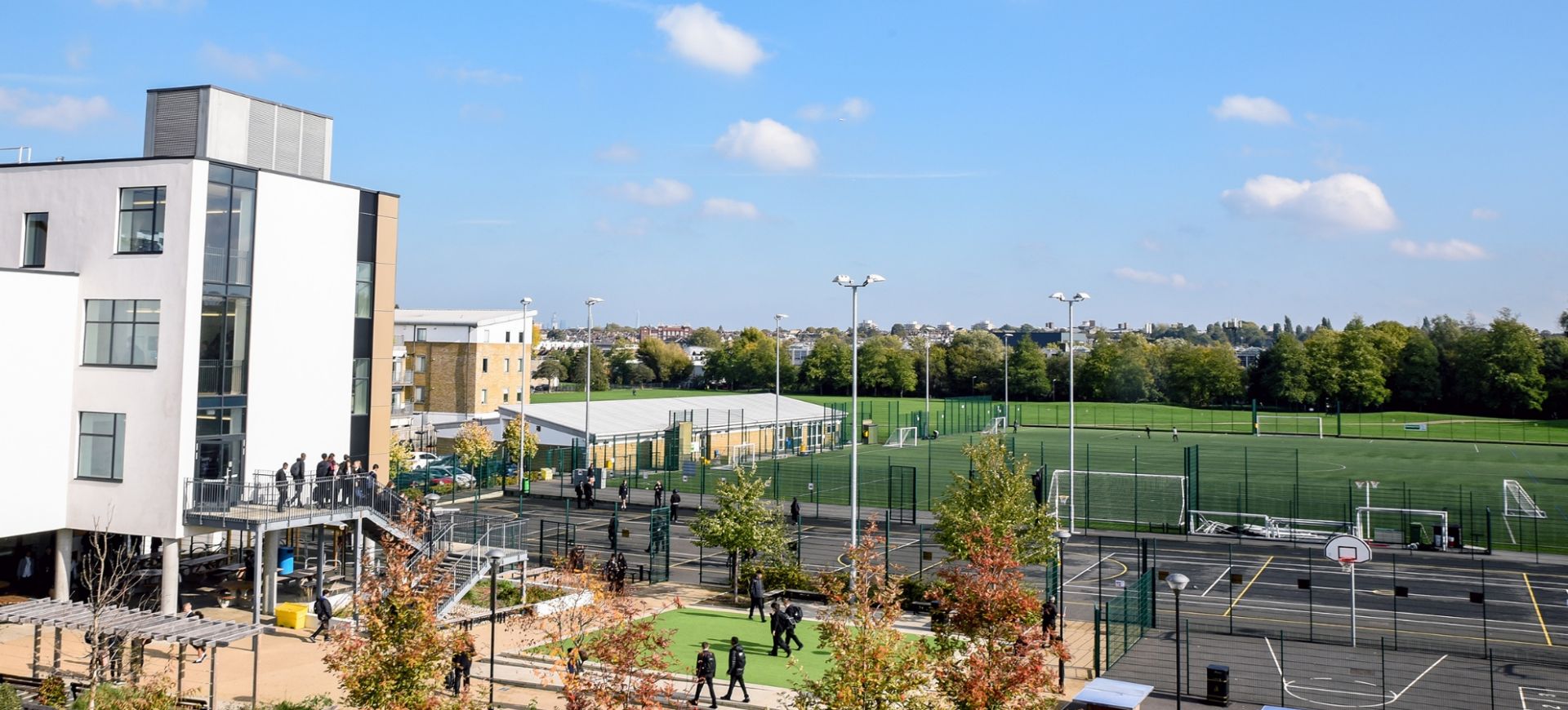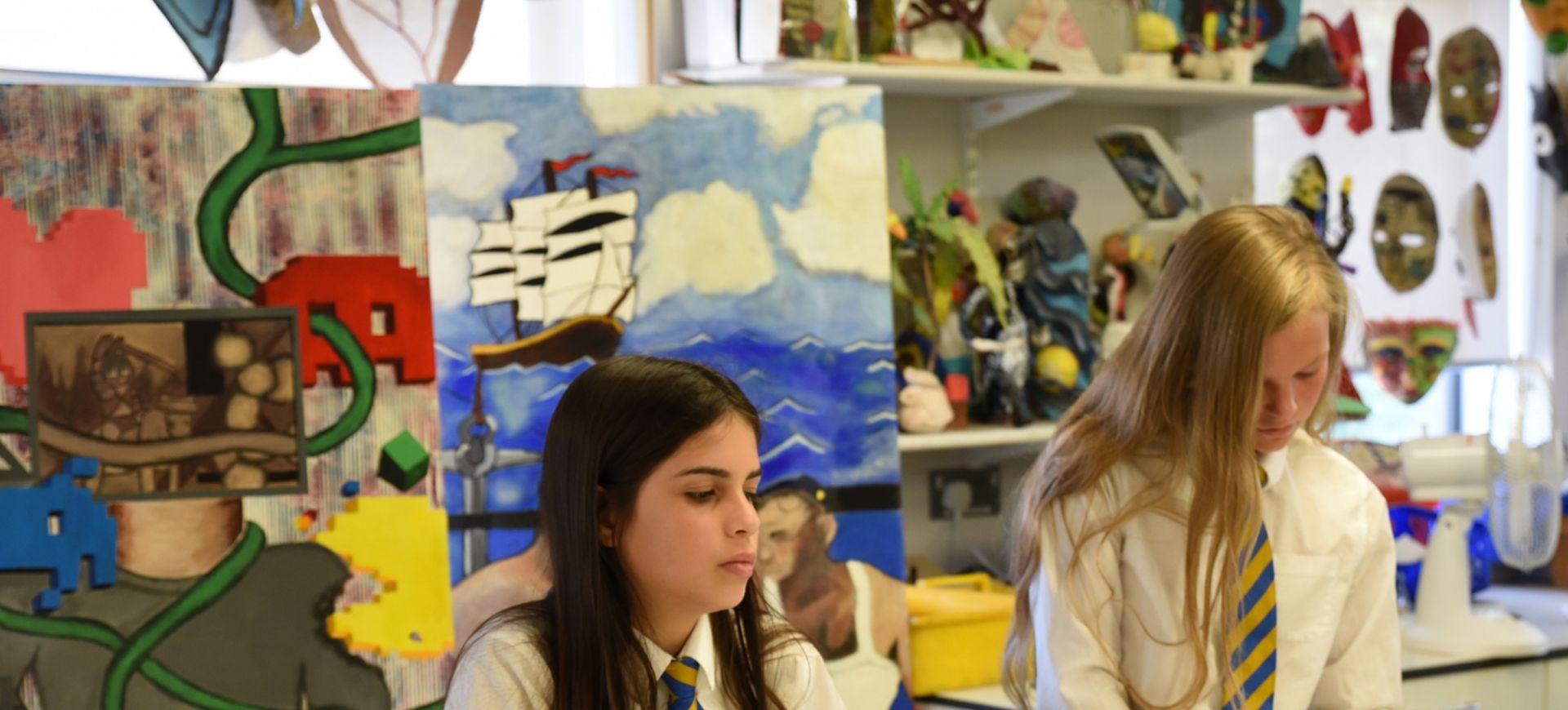Music
Teacher contact details
| Mr C Pinder | charles.pinder@southfieldsacademy.com |
| Mr F Quadraruopolo | francesco.quadraruopolo@southfieldsacademy.com |
Welcome to the Music Department
Our aim is to develop students' musicianship so that each child can@
- Compose with imagination
- Perform with confidence
- Listen and appraise with understanding
To this end, the music curriculum is designed to provide students with the necessary sets of skills required to succeed and develop in each key stage.
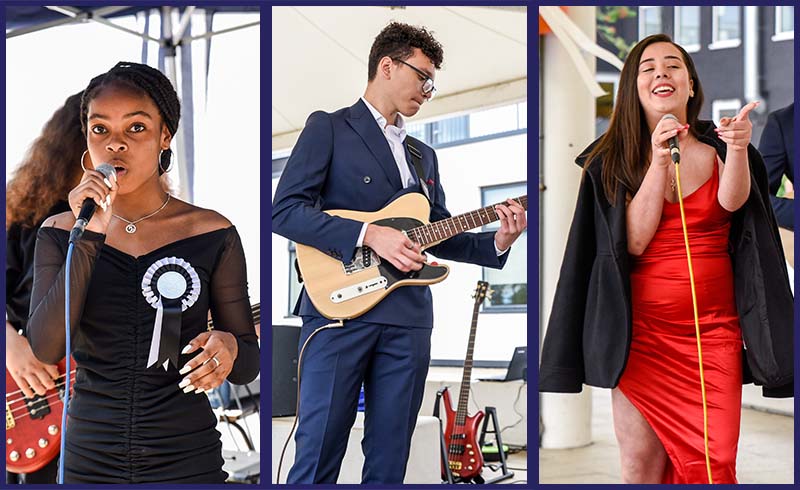
What knowledge and skills will students develop in KS3?
Year 7, Year 8 and Year 9 students study a rich and varied 'World Music' curriculum that embraces three main components: Listening, performing and composing. Students learn the building blocks of general musicianship skills through a comprehensive and stylised program based on our vocal and keyboard strategy. The Keyboard strategy enables all students to play two hands together by the end of their first year (Year 7). The department implements a well-established intervention strategy that has proven to be successful over time based on the Suzuki violin method.
We are inclusive and offer great individual opportunities for students in their musical endeavours. Assessment in Key Stage 3 music is predominantly practical and students’ progress is graded based on the Southfields Academy dedicated Progress Scale. Each unit of work last for one half-term.
Year 7 topics: Introduction to the keyboard and microscales, patterns, growing leaps, dexterity including learning Christmas songs, The Blues Bass Line, The Blues scale and improvisation, Primary Chords (Part one), Ronde (Traditional English music).
Year 8 topics: Gospel Music (Amazing Grace), Ensemble (Canon in D), Latin Music (Sway). Pop Music (All of Me), Primary Chords (part two), R&B (‘Forgot about Dre’ a 3 part arrangement)
Year 9 topics: Film Music (We Don’t Talk About Bruno), Christmas songs (Have Yourself A Merry Little Christmas), Pop Music (‘Memories’ linked to Canon in D), Jazz (I Wanna Be Like You Jungle Book), Classical Music (Mozart’s 40th 1 Subject, 1St Movement), Calypso (Soul Limbo).
What knowledge and skills will students develop in KS4?
OCR GCSE Music - J536
KS4 students will be entered for the OCR J536 GCSE in Music. The syllabus draws on our student’s music experience as well as testing their musicianship skills. There is sufficient latitude for students to use traditional instruments as well as music technology develop an understanding of Many different genres. There are five areas of study: The Concerto Through Time, Rhythms Of The World, Conventions of Pop, Film Music and My Music (students are encouraged to create music with a focus on performance and composing). At the end of two years of study, students submit a practical portfolio of recorded, produced and mixed down to MP3 pieces. Students use Logic software on Apple Mac computers to record, sequence and mix their music. Logic Pro turns a Mac Computer into a professional recording studio. A minimum of four pieces with a minimum time duration of six minutes. The practical portfolio is equal to 60% of the marks. The students will sit a listening and appraising examination that is equal to 40% of the examination.
Enrichment and extra-curricular activities
Saxophone and flute lessons. Small ensemble/band practice.
Students are encouraged to attend The World Heart Beat Music Academy for singing lessons, other instrumental practice and engage in a varied program of world music practice.
How can you help your child?
OCR GCSE Music Syllabus link
https://www.ocr.org.uk/qualifications/gcse/music-j536-from-2016/
OCR GCSE Music Syllabus link (assessment)
https://www.ocr.org.uk/qualifications/gcse/music-j536-from-2016/assessment/
OCR GCSE Music Specification link
https://www.ocr.org.uk/images/219378-specification-accredited-gcse-music-j536.pdf
OCR GCSE Past Paper 2022
https://www.ocr.org.uk/Images/677923-question-paper-listening-and-appraising.pdf
CGP GCSE Music OCR Complete Revision & Practice (with Audio & Online Edition)
Encourage your child to engage with YouTube Music instrumental tutorials to add value to their learning by learning to play music of their choice.
How can students extend their thinking and challenge themselves in this subject?
Of particular benefit would be learning to play a musical instrument through one to one tuition
What are the career opportunities for students that study this subject?
Teaching
Performing
Social media
Film/TV composer, Songwriter
Sound engineer, Mastering engineer, Electronic music producer, DJ
Music therapist
Music librarian, Researcher, Music Publisher, Programme researcher, Copyright administration in composition and recordings
Production, retailing and distribution of musical instruments, production, distribution and retailing of sound recordings
Event, festival and concert management, Arts administration and management
Schools and colleges liaison

